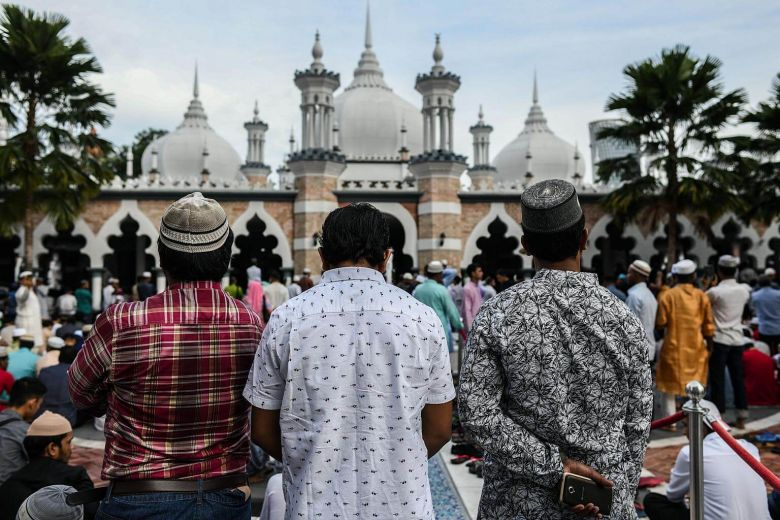Malaysia’s Most Powerful Islamic Body Faces Scrutiny

Malaysia’s new government intends to rein in the country’s most powerful Islamic agency and its huge financial budget, but needs to tread carefully so as not to offend the country’s Muslim majority.
(The Straits Times) – The move to review and reform the work of the Malaysian Islamic Development Department (Jakim) is part of sweeping moves taken by Prime Minister Mahathir Mohamad’s government, with top changes at several government agencies and companies, and with their budgets under scrutiny.
But the government needs to tackle Jakim with tact, observers say, as many Malaysian Muslims see it as a key agency that looks after their interests, even as there is some suspicion in the community that the month-old Pakatan Harapan (PH) government might water down Malay-Muslim rights.
Jakim trains teachers who work in mosques and Islamic institutions, prepares the weekly Friday sermons in Malaysia, ensures that food outlets serve halal dishes with its certification, and streamlines Islamic family laws among the 13 states and three federal territories, among other things.
Jakim and its unit, the Federal Territory Islamic Department (Jawi), were allocated RM1.03 billion (S$348 million) in funds by the Najib Razak administration in the 2018 Budget, with RM810.9 million alone for Jakim, an increase of 8.8 per cent from last year.
In November 2015, in response to public questions over its large budget, then Deputy Minister in charge of Islamic Affairs Asyraf Wajdi Dusuki highlighted another role played by Jakim – to protect the religion from “radical ideologies”. He said: “The Islamic State (in Iraq and Syria), liberalism and pluralism such as the lesbian, gay, bisexual and transgender (lifestyles) are the examples of radical ideologies which belittle the religion.”
Tun Dr Mahathir said last month that the review would determine if Islam was being portrayed by Jakim as a “cruel, harsh and unreasonable religion”.
“That is actually not Islam. We seem to be thinking up ways, which are not Islamic, in order to show that Islam is a religion that is harsh in its implementation. We seem to prefer force, as opposed to Quranic teachings, which say there is no compulsion in Islam,” he added.
The idea of a review of the Islamic body has received condemnation from conservative Malay Muslims. Some have warned that any attempt to touch Jakim will anger the Malay majority, spelling trouble for Dr Mahathir’s government. There is even speculation that Jakim might be shut down.
The Umno-owned Utusan Malaysia newspaper wrote: “The question of shutting down Jakim should not exist in PH’s vocabulary even if pressured by others. Instead, religious institutions like Jakim should be upheld to protect the Muslim community’s interests.”
How PH frames the fight to trim Jakim’s powers could determine how many Malay voters who chose Malay opposition parties Umno or Parti Islam SeMalaysia (PAS) at last month’s polls would switch to the new government at the next polls.
Pollster Merdeka Center estimated that the four-party PH attracted 25 per cent to 30 per cent of Malay votes in the May 9 general election, against 35 per cent to 40 per cent who voted for Barisan Nasional, and 30 per cent to 33 per cent who supported PAS.
Jakim has made the news in recent years for the wrong reasons, giving the impression it is run by overzealous officials. Last year, one of its officers angered Johor Sultan Ibrahim Sultan Iskandar after he criticised the ruler’s decree to close down a launderette in Muar that would accept only Muslim customers.
In 2016, fast-food chain A&W had to change the name of its “Coney Dog” hot dog to “Chicken Coney” or “Beef Coney” to apply for halal certification, which Jakim controls.
Federal Territories Mufti Zulkifli Mohamad Al-Bakri earlier this month said he backed the government’s move and assured Muslims that Jakim would not be shut down. “The issue is actually not abolishing the department, but scrutinising how its roles can be enhanced and empowered,” he said.

